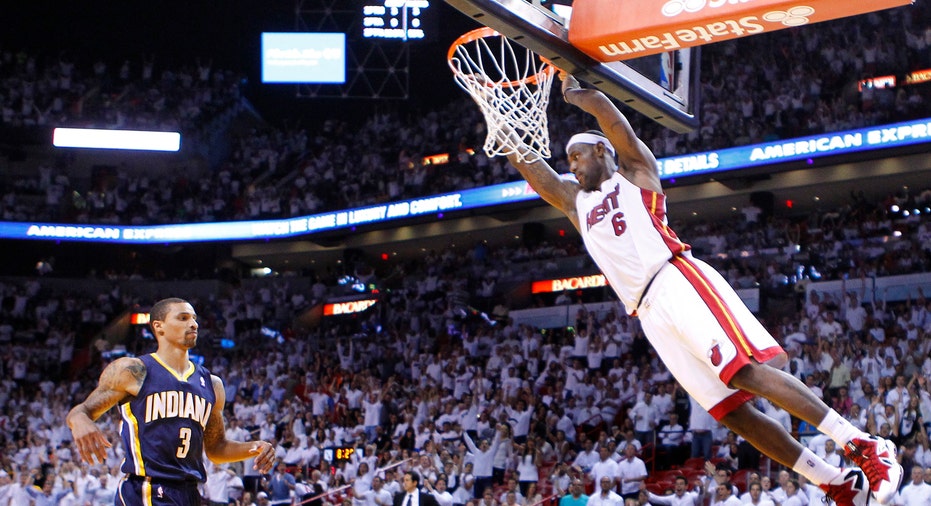Celebrity Endorsements Offer Marketing Lesson: Make It Fit

When spending top dollar to have a celebrity endorse a product, a business better make sure the endorsement will resonate with consumers.
To do so, a company should find a celebrity that is either a really good fit or a really bad one for the product, a new study in the journal Psychology and Marketing finds.
The research discovered that when consumers see two ads featuring the same celebrity, they are more likely to forget information when the celebrity is endorsing a product that is only moderately associated with the celebrity's source of fame. On the other hand, when a product is either a really good or really bad fit with the reason for the celebrity's fame, consumers are more likely to remember the information.
Katie Kelting, a marketing researcher at the University of Arkansas and one of the study's authors, said an example of a moderate fit would be if basketball star LeBron James appeared in a State Farm Insurance advertisement. As an industry or product, insurance does not fit the nature of James' celebrity, she said. Thus, the product neither enhances his celebrity nor conflicts with it.
However, the study showed that consumers experience a relatively high level of recall when celebrities endorse products that are highly matched with their expertise or image, such as James selling basketball shoes or a sports drink.
Additionally, the same type of recall would occur when James endorsed a product like McDonald's, which would be considered a low match. This is because of the perception that professional athletes, who are at peak physical condition, don't reach that state by eating frequently at the fast food giant.
"A low match is just weird enough for people to remember," Kelting said in a statement. "It may not make sense to them, and they may not feel particularly good about it, but they will remember it, more so than LeBron James endorsing an insurance company."
For their study, researchers presented eight color print-advertisements to 235 undergraduate students enrolled in an introductory marketing course. Six ads were filler material and were identical across all conditions. The remaining two ads were "interfering" and "target" ads, with endorsements by professional soccer player David Beckham.
In the interfering ads, Beckham endorsed sports drinks, an MP3 player or a baseball bat, while in the target ad, he pitched a camera. Researchers found that the choice of interfering ad affected recall for the camera ad.
Specifically, when asked which products Beckham touted, the students were less likely to remember the camera when also shown the sports drink, considered a high match for Beckham's celebrity, and the baseball bat, a low match (but still a match). However, when they were shown the MP3 player, which had only a moderate connection to Beckham’s celebrity, they were more likely to remember the camera ad.
Kelting said the experiment demonstrates how brands in a celebrity's "endorsement portfolio" compete with each other when consumers use the celebrity as a retrieval cue for information contained in an ad. Brands that have either a high or low match, based on the celebrity's expertise or reason for being famous, win the battle of retrieval, she said. These brands actually hinder consumers' ability to accurately remember information in ads that were only a moderate match with the celebrity.
Kelting said the findings demonstrate that marketers should think hard, or at least be strategic, about using celebrities to sell their products.
"They shouldn't expect consumer memory to be accurate, especially when the famous face endorses other brands," she said. "If consumers like a celebrity ad featuring LeBron James when they see it but cannot remember which brand of insurance he endorsed when they are later in the market for car insurance, then what was the point of hiring LeBron James in the first place?"
Dan Hamilton Rice, a marketing professor at Louisiana State University, co-authored the study.
Originally published on Business News Daily



















